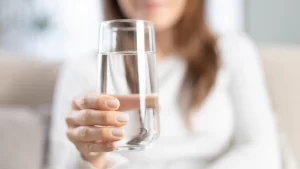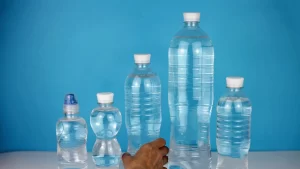Hydration and Weight Loss: How Water Intake Affects Your Weight
We usually concentrate on nutrition and exercise when it comes to losing weight, but there’s another important component that’s commonly disregarded: hydration. Drinking enough water has advantages beyond merely slake your thirst and is crucial to your weight management quest. Let’s explore how hydration can help you achieve your weight loss objectives and maintain general health.
The Science Behind Hydration and Weight Loss
Research has shown a clear connection between water intake and weight management. Here’s how hydration impacts your body:
- Boosting Metabolism: Your metabolism may momentarily increase if you drink water. According to a study that was published in the Journal of Clinical Endocrinology and Metabolism, participants’ metabolic rates rose by 30% for up to 40 minutes after consuming roughly 17 ounces of water.
- Natural Appetite Suppressant: An natural appetite suppressor is water. We frequently confuse hunger for thirst. You may feel fuller and consume less calories if you have a glass of water before meals.
- Calorie-Free Alternative: You can drastically cut your daily calorie consumption without experiencing any deprivation by opting for water instead of caloric beverages.
- Supporting Fat Metabolism: The body needs adequate hydration in order to properly digest fat that has been accumulated. It is impossible for your body to burn fat as fuel effectively without enough water.
How Much Water Should You Drink?

While individual needs vary, a general guideline is to aim for:
- 9 cups (2.2 liters) per day for women
- 13 cups (3 liters) per day for men
However, factors like activity level, climate, and overall health can influence your hydration needs.
Strategies to Increase Your Water Intake

- Start Your Day with Water: Drink a glass of water as soon as you wake up to kickstart your metabolism and rehydrate after sleep.
- Use a Water Tracking App: Many smartphone apps can help you monitor your daily water intake and send reminders.
- Infuse Your Water: Add slices of fruits or herbs to your water for a flavor boost without added calories.
- Set Reminders: Use alarms or sticky notes to remind yourself to drink water throughout the day.
- Eat Water-Rich Foods: Incorporate foods with high water content, like cucumbers, watermelon, and zucchini, into your diet.
The Impact of Hydration on Exercise Performance

Proper hydration is crucial for optimal exercise performance, which in turn supports your weight loss efforts:
- It regulates body temperature
- Reduces fatigue
- Prevents muscle cramps
- Improves endurance
Aim to drink water before, during, and after your workouts to maximize these benefits.
Hydration and Long-Term Weight Management
Maintaining hydration is essential for long-term weight management as well as for quick weight loss. Insufficiently hydrated individuals had higher BMIs than properly hydrated individuals, according to a study published in the Annals of Family Medicine.
Conclusion
Even though consuming water by itself won’t make weight disappear, staying well hydrated is crucial to a weight loss plan that works. You can support your body’s natural processes, possibly cut calories, and improve your workout performance by include enough water in your daily routine. Recall that making minor, regular adjustments to your drinking routine can have a big impact on your general health and progress toward managing your weight.
Set a goal for yourself to stay hydrated and monitor how much water you consume. Your body will appreciate it, and you could discover that leading a healthier lifestyle just naturally includes drinking plenty of water.
FAQ’s
1. How does drinking water help with weight loss?
Water helps people lose weight by increasing metabolism, suppressing hunger naturally, substituting high-calorie drinks with water, and promoting fat metabolism. It can also enhance workout performance, which helps boost weight loss attempts in a roundabout way.
2. How much water should I drink daily for weight loss?
Although specific requirements differ, a typical recommendation is 9 cups (2.2 liters) for women and 13 cups (3 liters) for males per day. However, your unique hydration requirements may vary depending on things like your exercise level, the local environment, and general health.
3. Can drinking water before meals help me eat less?
Yes, drinking a glass of water before meals can help you feel fuller, potentially reducing your calorie intake. This strategy can be particularly effective for weight management.
4. Does the temperature of water matter for weight loss?
While your body works to reheat the water, some research suggest that drinking cold water may provide you a little metabolic boost. Still, the impact is negligible, and the most crucial thing is to drink enough of water at all times.
5. Can I count other beverages towards my daily water intake?
Even though water is the ideal beverage for hydration, you can still get your recommended daily intake from other drinks. With sugary or caffeinated drinks, however, use caution as they may have additional impacts on your body and calorie consumption.
6. How can I tell if I’m properly hydrated?
The color of your pee is an excellent sign of how hydrated you are. You’re probably drinking enough water if it’s clear or pale yellow. Urine that is amber or dark yellow typically suggests dehydration.
7. Is it possible to drink too much water?
Although it is uncommon, drinking too much water might result in hyponatremia, a medical disease. For the majority of individuals, nevertheless, this is unimportant. When your body tells you that you’re thirsty, follow its lead.
8. How long does it take to see weight loss results from increasing water intake?
Increased water consumption can have a range of consequences on weight. When paired with a good diet and regular exercise, some people may see a reduction in water retention within a few days, but the effect on actual fat loss may not become apparent for many weeks.

